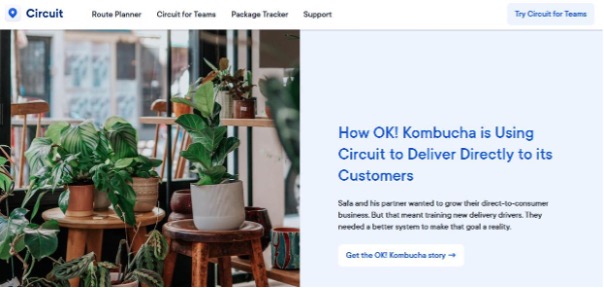A peaceful and warm evening lulls you into a state of bliss. Nothing is bothering you. You’ve decorated your text with SEO elements and published it on your website. And now, you’re sipping your coffee and calmly waiting for your Google ranking celebration. And then… Bam! Your website gets penalized by Google, or – at worst – a lawsuit is knocking on your door.
Why?
You must have tried unethical practices like keyword stuffing to influence your Google rankings. Such a black-hat SEO trick can evoke penalties from Google: downgrading the site’s ranking, ignoring the page, or removing the whole website from its index.
But don’t worry. Uncle Google won’t sue you for overstuffing your text with keywords. There are more severe illegal practices in SEO texts than that. And they lead to more pessimistic scenarios. They can sabotage your SEO efforts and ruin your business reputation altogether.
Read on to discover the most commonplace ones and learn how to steer away from them.
Is It Possible to Write an SEO Text Illegally?
When you optimize your text for search engines, breaking the law is as easy as counting 1-2-3. In fact, illegal SEO content can drag you into the courtroom.
Let’s see why.
Pagejacking
Look at your competitor’s highest-ranking page.
It has impeccable on-page SEO and ranks in the top ten of Google’s SERP.
Wouldn’t it be great to simply clone it to your website and let it drive traffic to you?
Don’t even dare. If you do so, that would be pagejacking. A pagejacker is a thief who steals web pages and violates the copyright law. An illegal web page copy may be a totally identical text or a near replica of the original page. So, if you think you can copy-paste the page and change only some parts of the SEO content, that won’t do any good. It may still be considered copyright infringement.
At best, you may receive a cease and desist letter from the website owner (victim) asking you to remove the stolen content. If you fail to do so, welcome to court.
Disinformation
Filling your text with keywords for SEO, you deliberately pick those phrases searched most by people. But what if none of the words is true about your product or service?
Deceiving your customers like that can become one of your worst SEO mistakes, causing legal trouble. In this case, you violate the regulations under the Federal Trade Commission Act, the Deceptive Trade Practices Act, and other consumer protection laws.
Some businesses provide fake info about their products to create compelling content for SEO. The most typical cases of lying to consumers are:
- Made in [country] – made in USA or buy British
- 100% [material] – 100% cotton clothing
- The cheapest [product name] – the cheapest car you can find
Check this real-life example from a meta description:
Then, there are product safety deceptions and greenwashing. Let’s give them a more detailed overview.
Safety and security deception
It mainly concerns the products deceptively labeled as 100% safe and secure.
Alex Milligan, Co-founder & CMO of NuggMD, provides examples from the medical sphere:
“Medical device companies, for instance, often face legal issues due to false statements about their product safety. They tend to describe their tools as completely secure. As it turns out later, they expose customers to health and well-being risks, including device-related injuries. That’s what happened with Philips (sleep therapy machines) and Medtronic (MiniMed™ insulin pumps).”
Greenwashing
Brands can also optimize their product pages with such keywords as green, sustainable, environmentally friendly, or 100% recycled when it is not true about their products.
This is greenwashing. It’s illegal to falsely advertise products or services as ecologically friendly. Nestlé, H&M, Coca-Cola, and other giants appeared on the list of companies that received greenwashing accusations.
Trademark infringement
In some cases, the desire to improve rankings in search results may be so strong that SEO professionals get blinded by it and violate trademark rights.
Trademark infringement refers to an unlawful usage of someone’s service mark or trademark.
Let’s say you want to optimize your delivery website. What if you pack your SEO text with keywords like Uber delivery service and Uber driver near me to make it skyrocket your Google rankings? Naturally, they will help you pop up higher. At the same time, they may drown you in the legal waters altogether because you infringe on the trademark of Uber.
For example:
Montblanc, a German luxury brand, accused a website operator of trademark counterfeiting and won $32 million in damages.
Bias and discrimination
The most widespread types of discrimination and stereotypes in SEO texts are:
- Classism (prejudice toward people of a different social class)
- Ageism (discrimination by age)
- Racism (racial discrimination)
- Ableism (discrimination against people with disabilities)
- Gender bias
- Sexualism (sexual orientation discrimination)
- Religious prejudice
Let’s take companies using search engine optimization tactics to promote their vacancies online.
Most frequently, they drop the following age bias in job descriptions: recent graduate, young team, high-energy, tech-savvy, digital native, etc. You can also spot gender bias and discriminatory words like superhero or salesman. They may be spelled unconsciously, but they affect women all the same.
It would be better to pick up keywords more thoughtfully so as not to offend candidates’ feelings, comply with employment laws, and reduce legal risks in SEO.
How to Create Law-friendly SEO Texts
Let’s work on your SEO text improvement to save you from lawsuits.
Declutter your keyword list
Suppose you know how to do keyword research. But how do you choose the right keywords for your content and separate the lawful from the unlawful ones?
“One of the best methods to keep away from legal pitfalls in SEO is to filter keywords,” claims Gregory Heilers, Co-Founder of Jolly SEO. “You research keywords in a usual way. But before pouring them all into your text, you might need to determine your filtering criteria first and then exclude illegal keywords to achieve ethical SEO,” he adds.
Gregory Heilers shares several keyword filtering tools to help you do that:
- Raita.ai
- Semrush
- Keysearch
- RankRanger
- KWFinder
- AccuRanker
Add disclaimers
A disclaimer is an informative message stating the limit of an individual or company’s legal liability and responsibility.
Why do you need one in your SEO copy?
Michael Power, CMO at DTF Transfers, states, “Disclaimers are the most helpful preventive and protective measures against legal claims.” He explains:
“By adding a no-responsibility disclaimer to your product page, you inform your customers that you won’t be liable for how they use your product and for any damage directly or indirectly related to its usage.”
Michael Power also recommends the following: “If you provide no guarantees for the durability of your product used under certain circumstances and conditions, for example, you should write a no-guarantee disclaimer.”
That’s what DTF Transfers did on the UV DTF Stickers product page.
Support your SEO with social proof
“You say your product or service is of excellent quality. Have you got any proof? How do your customers know it’s not a lie? Suppose you want to write legal content for SEO. In that case, adding some social proof not to sound baseless and deceptive is mandatory,” says Fernando Lopez, Marketing Director at Circuit.
Social proof or validation is a psychological phenomenon of influence. Its meaning is simple: when making decisions, people rely on the opinions of others. The best part? It also contributes to a higher conversion rate on your website.
Consider the following types of social validation:
- Rating
- Review
- Testimonial
- Endorsement
- Social media comment
- Case study, etc.
If you glance at Circuit’s homepage, you’ll notice at least two markers of social credibility ingrained into the SEO text.
Example one: a testimonial from Joanne Evangelist, FedEx delivery driver
Example two: a case study of Kombucha
Read your SEO copy as if you were a customer
If you like role-playing games, you’ll enjoy this one which was suggested by Jesse Hanson, Content Manager at Online Solitaire & World of Card Games:
“You should step into your readers’ shoes and analyze your SEO content from their perspective. It’s tricky because you must leave your comfort zone (political, religious, etc.) and discard your prejudices. This will help you prevent the major legal issues in your text SEO, particularly discrimination.”
Jesse Hanson offers several questions to answer while reading:
- Is the information relevant and backed up with qualitative (features, usage examples) and quantitative (numbers, parameters) data?
- Is the tone friendly and polite?
- Can you call it unbiased writing? (Make sure the text doesn’t contain gender-specific pronouns like he and she or stereotypical labels
- like low-income or Harvard graduate.)
- Any disturbing words or phrases that make you feel uncomfortable or humiliated?
- Does it read well overall?
It may be necessary to improve the readability of your SEO content and make the text run more smoothly and naturally. Your purpose is not only getting clicks. It’s also about engaging, persuading, and converting your target audience.
Finally, Polish Your Text SEO with AI
Artificial intelligence has already revolutionized content marketing.
Today, practically every SEO content writer turns to AI for text improvement.
Here’s why:
- AI avoids plagiarism.
- AI produces SEO-nourished texts.
- AI maintains consistency in keyword optimization.
- AI personalizes content.
- AI simplifies and automates the SEO writing process.
And you may see it all in action right now.
Try out the intelligent AI writing software by Textmetrics with suggestions for creating better SEO copies. This AI-powered text optimizer will help you write more clearly, understandably, and inclusively and improve your SEO. No keywords repeated 100 times or biased phrases in your text anymore.
Stay at arm’s length of legal problems by typing high-quality SEO texts with Textmetrics.
This guest-article was written by Erika Rykun, Editor-in-Chief at Booklyst.net.




